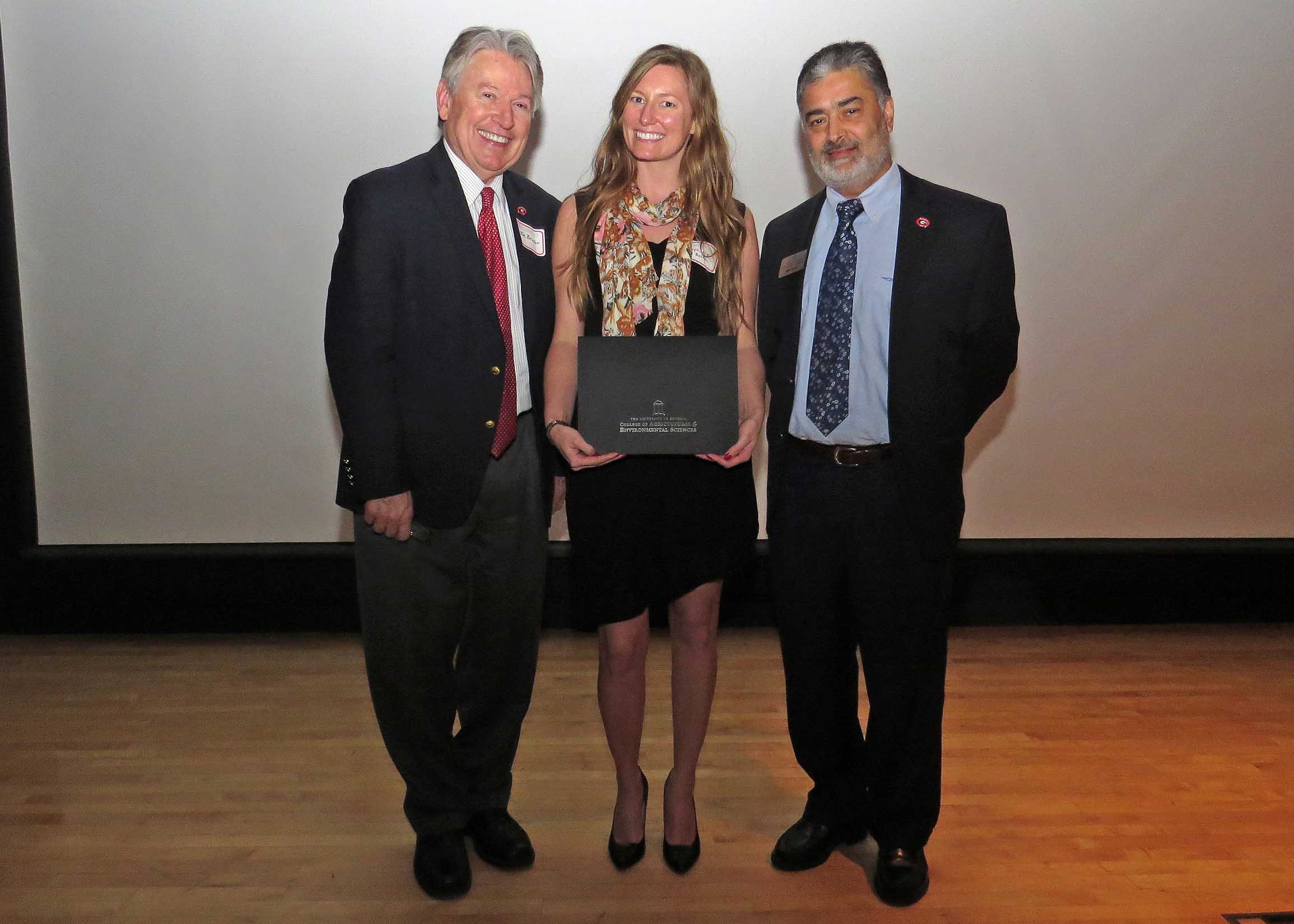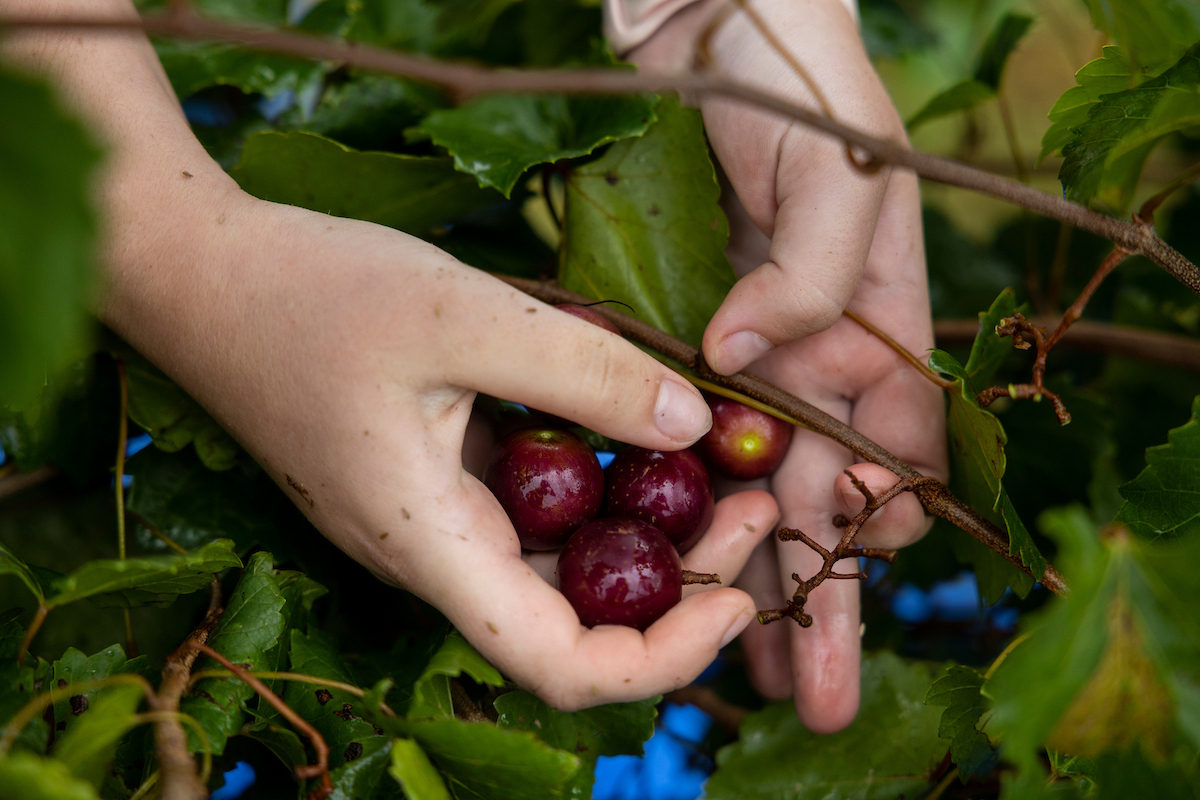In 2015, the University of Georgia College of Agricultural and Environmental Sciences (CAES) expanded a program that funds graduate student research travel, with remarkable results.
For the first time this year, the UGA CAES Office of Global Programs (OGP) offered travel grants to three graduate students to enhance their doctoral research and help them build a network of international scientists who share their interests. In the past, the office has only offered one Global Programs Graduate International Award a year.
“We had such a large number of excellent proposals that we couldn’t narrow our decision to just one award,” said Vicki McMaken, OGP associate director. “Fortunately, we were able to allocate funds for an additional award from our office, and a third was funded by the CAES Office of Academic Affairs.”
The award allowed plant pathology doctoral student Stephanie Bolton to find other scientists working on mycotoxins, or toxins produced by fungi.
Bolton’s research focuses on the large number of Fusarium fungi that can produce harmful mycotoxins in grapes in the southeastern United States. She was having a difficult time finding a community of scientists focused on the same topic.
With her graduate travel grant, she attended the European Fusarium Seminar (EFS) in Puglia, Italy, and spent the conference talking Fusarium with researchers from Brazil, Japan, the Netherlands, Spain and, of course, Italy.
“I’ve presented at other conferences, but it has always felt like my research topic didn’t quite fit in, since it is of an interdisciplinary nature. At EFS, I was talking about wine, Fusarium fungi and mycotoxins constantly, sometimes until 2 a.m., with all of the rock stars in the field,” Bolton said. “And, best of all, they were very interested in the work we are doing at UGA.”
While at the conference, Bolton won a prize for her research poster, but the highlight of the conference was tapping into the ideas of a network of scientists who shared her interests, she said.
Yi Gong, a doctoral student in Food Science & Technology, presented his research in China at the Annual Conference and Exhibition on Functional Foods, Nutraceuticals, Natural Health Products and Dietary Supplements.
Gong’s research focuses on the nutritional and health-promoting components of U.S. pecans, including evaluation of the antioxidant capacities found in pecans and use of liquid chromatography and mass spectrometry to compare phytochemicals found in the tree nuts. At the conference, Gong presented his research comparing selected and bioactive nutrients found in pecans and Chinese hickory nuts.
“The aim of this research is to provide consumers with detailed nutritional and healthful bioactive facts about pecans in order to promote an increase in per-capita consumption through targeted marketing efforts by the industry and to secure the long-term competitiveness of U.S.-grown pecans,” Gong said.
Gong’s research on the health benefits of pecans has already benefitted the United States and, more particularly, Georgia’s economy, as China has opted to reduce tariff rates on pecans from 24 to 10 percent.
Brad K. Hounkpati, a doctoral student in entomology, used his grant toward completing his research on ladybugs. Hounkpati visited five different countries on two continents over the course of 30 days as part of his research on the West African Coccinellidae (WAC)—commonly known as ladybugs or ladybird beetles—and their potential for bio-control programs in Africa.
During that time, Hounkpati collected 128 WAC species in Benin, Ghana, and Togo, West Africa. In Belgium, Germany and Senegal, Hounkpati photographed ladybug specimens, which will allow him to make definitive identifications of the insects that he and others have collected. While in Senegal, he was given a curated collection to bring back to Georgia and use as part of his identification efforts.
“My knowledge about the taxonomy and biology of WAC has increased dramatically as a result of my research in the field and in natural history museums,” Hounkpati said. “I also established a strong network of collaborators in West Africa.”
Hounkpati’s research is part of a collaborative program that includes scientists in seven West African countries—Benin, Burkina Faso, Côte d’Ivoire, Ghana, Niger, Nigeria and Togo—and has the goal of producing major taxonomic works on WAC. Additionally, the researchers hope that by broadening the knowledge of ladybugs in West Africa, the insects might be used as pest control agents and could contribute to food security. In addition, Hounkpati said he hopes the work will increase the awareness of small-holder farmers about the potential consequences of misuse and safety aspects of synthetic pesticides.
While working in Ghana, Hounkpati was visited by his father, who expressed pride in his son’s accomplishments and thanks for the support that Hounkpati has received.
“Everywhere I go, people know more about your work and commitment to give back to our communities,” Hounkpati’s father told him. “I’m so proud of you. But please do not forget to tell all the people who are contributing to make this happen that I say, ‘thank you.’”
For more information on applying for the 2016 Global Programs Graduate International Travel Award, go to global.uga.edu/scholarships/GlobalProgramsGraduateInternationalTravelAward.





